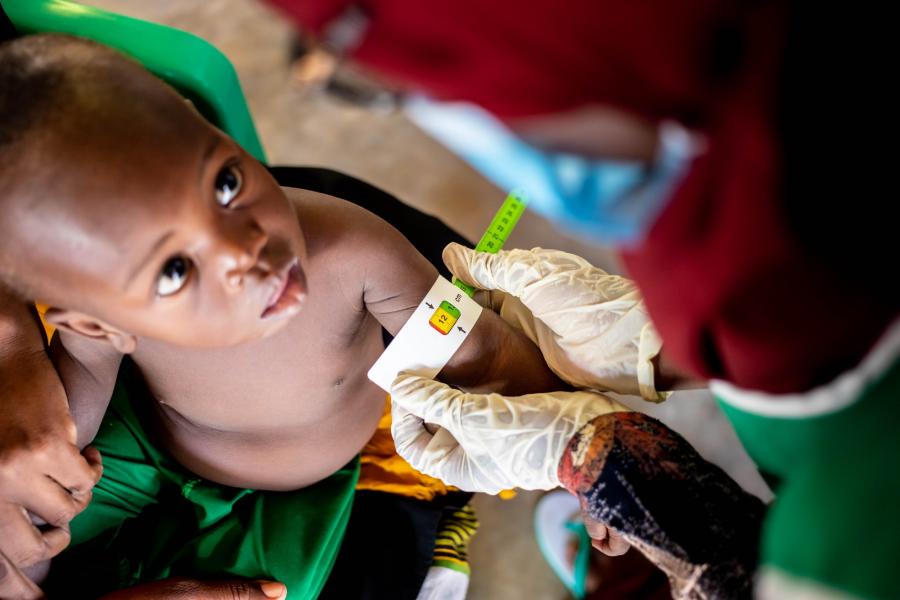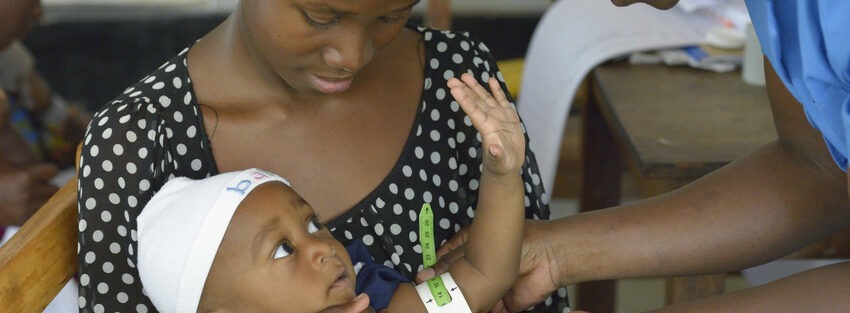Caregivers' Perspective- The Wristband for Immunisation Alert (WIA)
Rejoice Kaka Hassan Tweet
Immunization programs are preventive and cost-effective child health interventions for reducing childhood mortality and disability from infectious diseases. However, to fully maximize the benefits of immunization programs, timely administration of vaccines is important for effective disease prevention1.
The 2016 MICS/NICS data which served as a baseline report shows that only 8 to 17 percent of children received their vaccinations within the recommended time in North-western Nigeria. In Kano state, for instance, only 13 percent of children received Penta 1 vaccination before 6 weeks of age, and only 41 percent of children received their Penta 2 and Penta 3 doses less than 4 weeks from the previous vaccination. This has been attributed to caregivers’ lack of awareness of the scheduled routine immunization (RI) visits for their wards and their poor understanding of the impact of poor immunization timeliness and completion2.
In view of this, a Wristband for Immunization Alert (WIA), was created and designed by Sidney Sampson, Managing Partner, Sydani Group, and with funding from the Bill and Melinda Gates Foundation (BMGF) Global Grand Challenges, the WIA was produced and piloted among caregivers in Kano state from 2018-2020 to address poor immunization timeliness.

WIA is a wristband designed to remind caregivers to take their children for immunization on time. In the words of Mr. Sidney, he describes WIA as “an innovative device developed to help mothers, especially those in rural areas who can barely read or write, to get their children immunized on time”. The WIA was distributed for free at health facilities to mothers after childbirth or during their first immunization visit. To activate the device, a health worker at the facility configures the timer to remind mothers and caregivers of the next immunization visit. The reminder system initiates the device to start blinking red light at the beginning of the week of the next visit, prompting the caregiver/mother to take the child(ren) to the health facility for immunization. At the end of the pilot phase, WIA had improved immunization timeliness by 34% in the four pilot primary healthcare (PHC) facilities in Kano state2.
To have a balanced perspective on the usefulness of the WIA, the Sydani team captured the stories of four caregivers, one from each of the facilities where the WIA device was piloted, on their experience with the wristband.
One of the caregivers the team spoke with – A 30-year-old mother of six children who had used the WIA to improve immunization timeliness for her sixth child in one of the PHCs in Kano state – reported that her fifth son had only had 2 routine immunization visits (at birth and after 6 weeks). She made us understand that the reason for this was that she encountered some challenges on her way or completely forgot to take her child to the facility, she explained saying “I brought my son for immunization two times, sometimes when we come, we would encounter a challenge and have to return, and when the next week comes, I end up forgetting”.
She adopted WIA because she believed the wristband would ensure she immunised her child on time. “The health workers in the facility said it will remind me of the right time to come and immunize my children”, she said. She was given the band and trained on how it works when she brought her sixth son for his first vaccine dose at PHC Gandirwawa. “I brought him to take his injection when they gave me the band and they taught us how the band works, they said it will be showing red light as an alarm that the time for immunization has come”.
Although all three other caregivers that were interviewed practised immunization timeliness with their children before adopting the band, they acknowledged the benefits of the band and expressed that it helped them avoid dropping out. In using the band, one of the caregivers interviewed explained that it had done everything that it promised to achieve saying, “it seriously helped me. It reminded me of the exact date to take my child to be vaccinated because without it I normally would wait 2-3 days after the ideal vaccination date before taking my child to the facility for immunization but ever since I started using the band, I always remember to take my child for immunization on the right date”. By the end of the sixth son’s RI schedule, he had completed all five immunization doses on time, due to the impact of the WIA.
All four caregivers stressed that the band was easy to use, functioned properly all through the required period, and was accepted by their spouses and many other women in their community. “My family accepted it and loved it. They liked that it had an objective to remind me to immunize our children on time”, said one of the caregivers.
All caregivers interviewed encountered no problems or challenges with the use of the band and even promised to be part of the WIA scale-up plan if the opportunity presents itself again, saying “Yes I can encourage other women to use this one because it has done me well”; “Yes I will like to give birth to my other child and use this wristband for his immunization”; “I just like everything, they just said I should maintain it properly”. The caregivers recommended that more awareness be created on the need for and importance of immunization timeliness amongst women in the communities.
Given the impact of the WIA device in the four pilots-PHCs, the Sydani team is excited about the potential of the WIA and is eager to scale up the project to sustain the gains of the pilot phase and strengthen the immunization system at the primary healthcare level.
Sources:
1. Danjuma S D, Ibrahim A I, Shehu NY, Diala M U, Pam C V, Ogbodo CO. At-birth vaccination timeliness: An analysis of inborns in the highlands of Jos, North-Central Nigeria. Niger Postgrad Med J 2020;27:209-14
2. MICS/NICS report 2016




